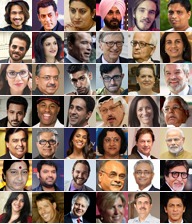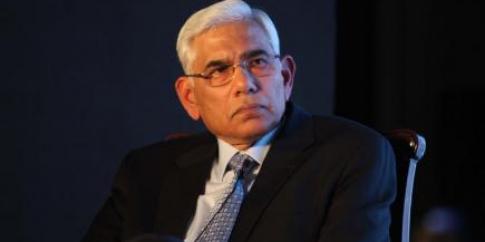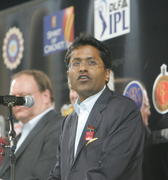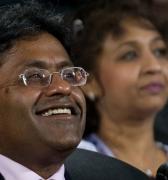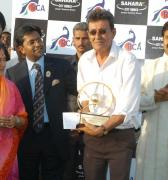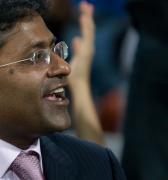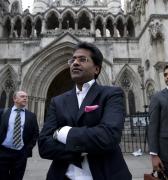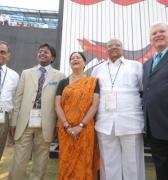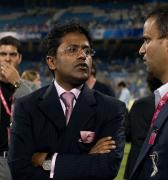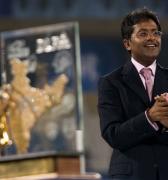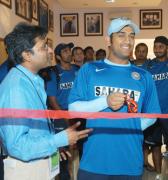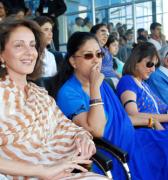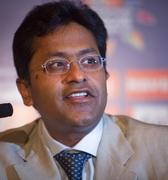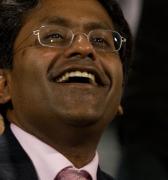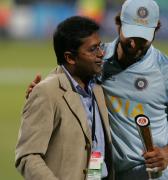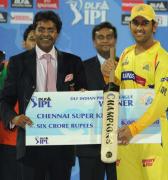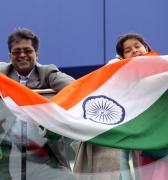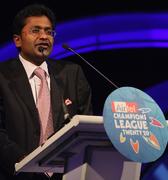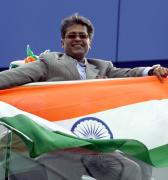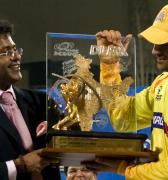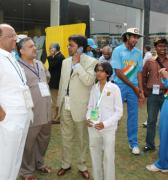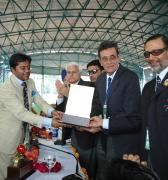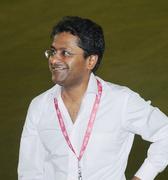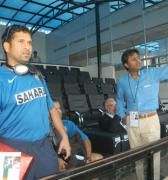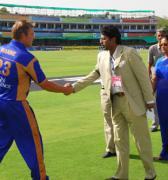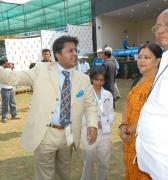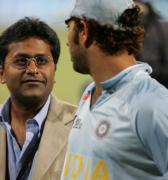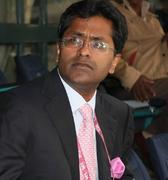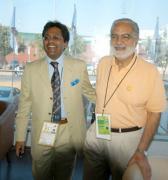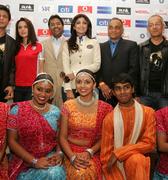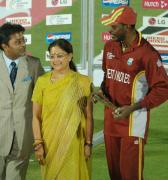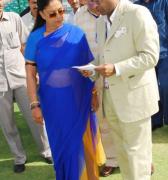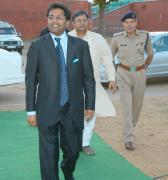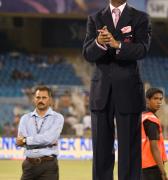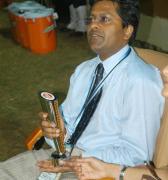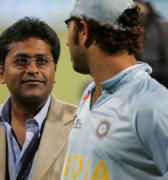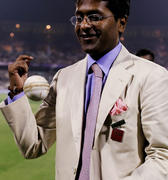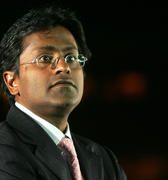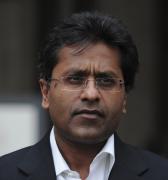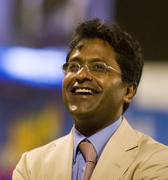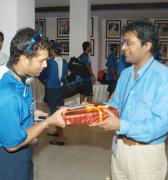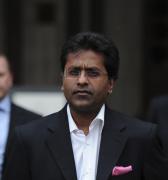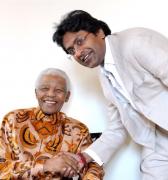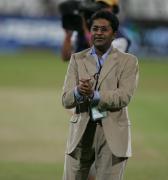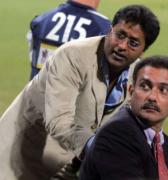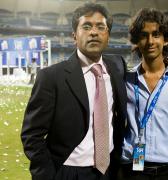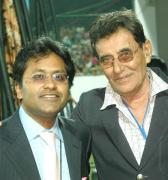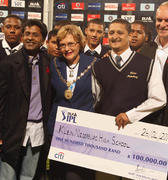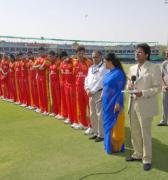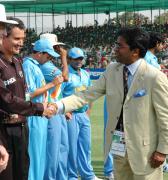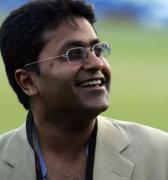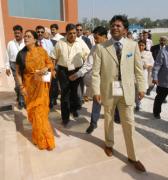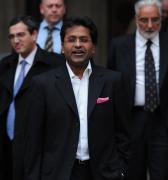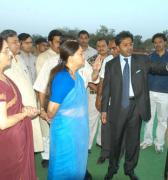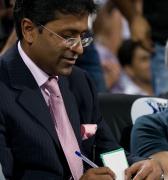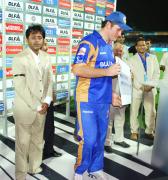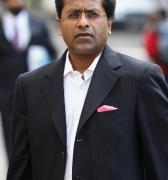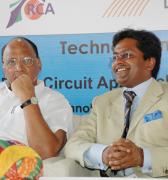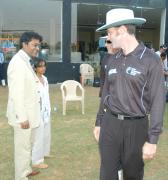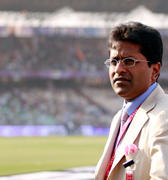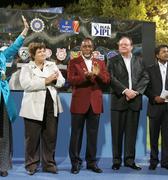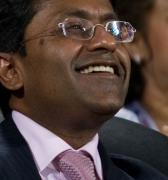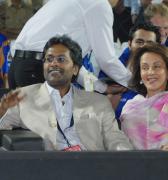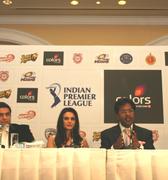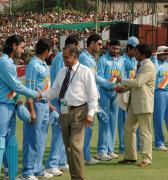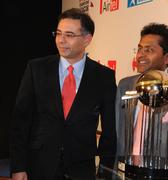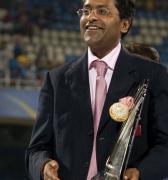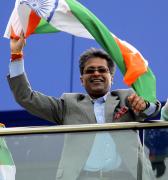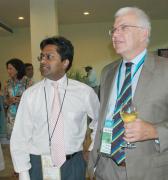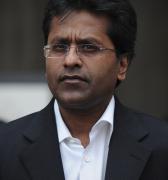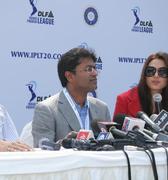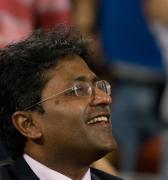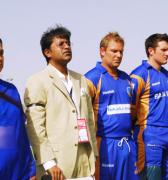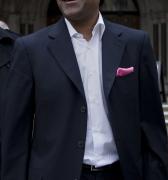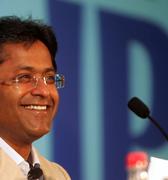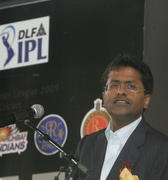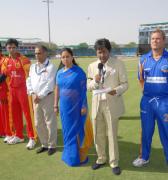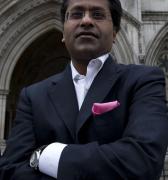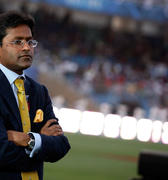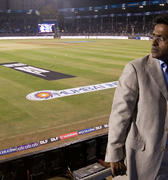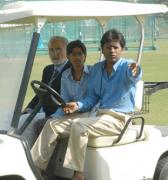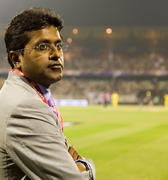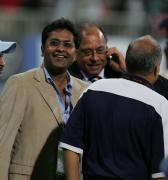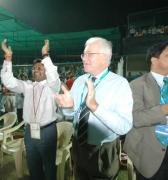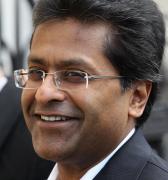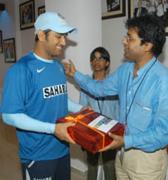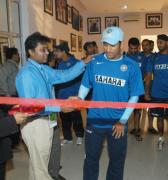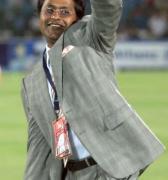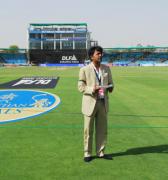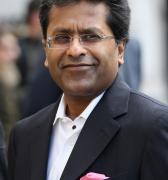'Shouldn't have taken anyone on face value' - Vinod Rai
CoA chairman Vinod Rai on the Kohli-Kumble relationship: "It was quite evident that there was disharmony in the dressing room and that the team could not continue with it"
If there is one thing Vinod Rai, the chairman of the Committee of Administrators (CoA), has learned from the chaotic episode that led to the appointment of Ravi Shastri as India coach, it is to not take "anyone at face value" in the BCCI. In an interview with ESPNcricinfo, Rai said the CoA did not have the "foggiest idea" about the total breakdown in talks between Indian captain Virat Kohli and former India coach Anil Kumble, which eventually forced the latter to step down; statements that reveal the extent of the lack of communication and trust between the various power centers running Indian cricket.
According to Rai, the CoA was not informed originally about Kumble's contract being valid for a year. And by the time they were told, it was "late" and they were left with just one choice: to put in place a process to pick a new coach. "The only thing it has taught me is that I shouldn't have taken anyone on face value," Rai said about the way the BCCI works. "I did not know about the conditions of Kumble's contract that it was one year. I did not have the foggiest idea of whether there was any dissonance between the coach and the team in the dressing room. At the late time that we got to know it was only fair that we follow a process to bring about either a change or extend Kumble. It was quite evident that there was disharmony in the dressing room and that the team could not continue with it."
The BCCI advertised twice for a new coach, first on May 25 and then when Kumble stepped down immediately after the Champions Trophy in June. Shastri didn't apply the first time, thinking that Kumble's reappointment was a done deal. In fact, Kumble had applied for the job as soon as the first advertisement came out despite the BCCI telling him that he was a "direct entry" into the shortlist. But as soon as he realised his relationship with Kohli had become "untenable" Kumble stepped down.
Shastri was one of five candidates the three-man Cricket Advisory Committee (CAC) interviewed on July 10. Initially, the CAC - Sachin Tendulkar, Sourav Ganguly and VVS Laxman - sought time to deliberate on their final choice. However, Rai intervened and asked the BCCI to announce the new coach immediately. Shastri, who the CAC felt was the "best choice", was promptly unveiled by the BCCI as the new coach till the 2019 World Cup.
The saga did not end there though. The BCCI media release to formalise Shastri's appointment added that Zaheer Khan would be the side's bowling consultant while Rahul Dravid would be the batting consultant on overseas Test tours. The two were finalised by the CAC, acting on the belief that it had been given a carte blanche by the BCCI and CoA in appointing the coaching staff.
But Rai clarified their ambit did not stretch to support staff appointments. "The CAC was not created by us, it was already in existence," he said. "And I had total faith in all the CAC members. They were supposed to choose the coach, which they did. Fair enough. They had full authority to choose the coach. But after choosing the coach they have given us two more consultants, which is not the normal pattern."
A CAC member told ESPNcricinfo last week that Shastri, Kohli and the BCCI were all kept in the loop over the appointments of the consultants. But Rai stressed that the CAC could only recommend and that the final authority to appoint remained with the CoA.
To that end, the CoA formed a four-member committee to finalise Shastri's coaching staff. The committee met Shastri in Mumbai on Tuesday and retained the existing pair of Sanjay Bangar (assistant coach), R Sridhar (fielding coach) and brought back Bharat Arun as the bowling coach. These three, Shastri said, would be his "core" set of coaches. Shastri also said he had spoken both to Dravid and Zaheer and welcomed them to provide "inputs" as and when they wanted. In doing so, Rai argued that neither the CoA nor the BCCI had u-turned.
When asked whether the CoA actually needed to be involved in the coach appointment process, Rai said there was nobody else the Supreme Court had given authority to. "Otherwise who would do it? The CEO? But we supervise the CEO. Left to myself, I don't want to be involved in any of these issues, but if it lands in our lap what do we do? The Supreme Court order says the CoA will supervise the administration of the BCCI through the CEO. It also mentions that on the CoA taking charge, the existing office bearers shall also function subject to the supervision and control of the CoA. Hence, we do have to assume the responsibility."
For the rest of the CoA's tenure, Rai has decided to conduct all meetings in future in the presence of three BCCI office bearers. "Henceforth, I have said all CoA meetings will also be attended by the BCCI office bearers. I did that because I take them along and also not give an opportunity to say that we took a decision behind their back and all that. As it is we have been transparent by putting out the minutes of our meetings on the BCCI website. I don't need to hide anything from them while I take the benefit of their presence to help us sort out matters."
If there is one thing Vinod Rai, the chairman of the Committee of Administrators (CoA), has learned from the chaotic episode that led to the appointment of Ravi Shastri as India coach, it is to not take "anyone at face value" in the BCCI. In an interview with ESPNcricinfo, Rai said the CoA did not have the "foggiest idea" about the total breakdown in talks between Indian captain Virat Kohli and former India coach Anil Kumble, which eventually forced the latter to step down; statements that reveal the extent of the lack of communication and trust between the various power centers running Indian cricket.
According to Rai, the CoA was not informed originally about Kumble's contract being valid for a year. And by the time they were told, it was "late" and they were left with just one choice: to put in place a process to pick a new coach. "The only thing it has taught me is that I shouldn't have taken anyone on face value," Rai said about the way the BCCI works. "I did not know about the conditions of Kumble's contract that it was one year. I did not have the foggiest idea of whether there was any dissonance between the coach and the team in the dressing room. At the late time that we got to know it was only fair that we follow a process to bring about either a change or extend Kumble. It was quite evident that there was disharmony in the dressing room and that the team could not continue with it."
The BCCI advertised twice for a new coach, first on May 25 and then when Kumble stepped down immediately after the Champions Trophy in June. Shastri didn't apply the first time, thinking that Kumble's reappointment was a done deal. In fact, Kumble had applied for the job as soon as the first advertisement came out despite the BCCI telling him that he was a "direct entry" into the shortlist. But as soon as he realised his relationship with Kohli had become "untenable" Kumble stepped down.
Shastri was one of five candidates the three-man Cricket Advisory Committee (CAC) interviewed on July 10. Initially, the CAC - Sachin Tendulkar, Sourav Ganguly and VVS Laxman - sought time to deliberate on their final choice. However, Rai intervened and asked the BCCI to announce the new coach immediately. Shastri, who the CAC felt was the "best choice", was promptly unveiled by the BCCI as the new coach till the 2019 World Cup.
The saga did not end there though. The BCCI media release to formalise Shastri's appointment added that Zaheer Khan would be the side's bowling consultant while Rahul Dravid would be the batting consultant on overseas Test tours. The two were finalised by the CAC, acting on the belief that it had been given a carte blanche by the BCCI and CoA in appointing the coaching staff.
But Rai clarified their ambit did not stretch to support staff appointments. "The CAC was not created by us, it was already in existence," he said. "And I had total faith in all the CAC members. They were supposed to choose the coach, which they did. Fair enough. They had full authority to choose the coach. But after choosing the coach they have given us two more consultants, which is not the normal pattern."
A CAC member told ESPNcricinfo last week that Shastri, Kohli and the BCCI were all kept in the loop over the appointments of the consultants. But Rai stressed that the CAC could only recommend and that the final authority to appoint remained with the CoA.
To that end, the CoA formed a four-member committee to finalise Shastri's coaching staff. The committee met Shastri in Mumbai on Tuesday and retained the existing pair of Sanjay Bangar (assistant coach), R Sridhar (fielding coach) and brought back Bharat Arun as the bowling coach. These three, Shastri said, would be his "core" set of coaches. Shastri also said he had spoken both to Dravid and Zaheer and welcomed them to provide "inputs" as and when they wanted. In doing so, Rai argued that neither the CoA nor the BCCI had u-turned.
When asked whether the CoA actually needed to be involved in the coach appointment process, Rai said there was nobody else the Supreme Court had given authority to. "Otherwise who would do it? The CEO? But we supervise the CEO. Left to myself, I don't want to be involved in any of these issues, but if it lands in our lap what do we do? The Supreme Court order says the CoA will supervise the administration of the BCCI through the CEO. It also mentions that on the CoA taking charge, the existing office bearers shall also function subject to the supervision and control of the CoA. Hence, we do have to assume the responsibility."
For the rest of the CoA's tenure, Rai has decided to conduct all meetings in future in the presence of three BCCI office bearers. "Henceforth, I have said all CoA meetings will also be attended by the BCCI office bearers. I did that because I take them along and also not give an opportunity to say that we took a decision behind their back and all that. As it is we have been transparent by putting out the minutes of our meetings on the BCCI website. I don't need to hide anything from them while I take the benefit of their presence to help us sort out matters."
(Courtesy: ESPNCricinfo)




